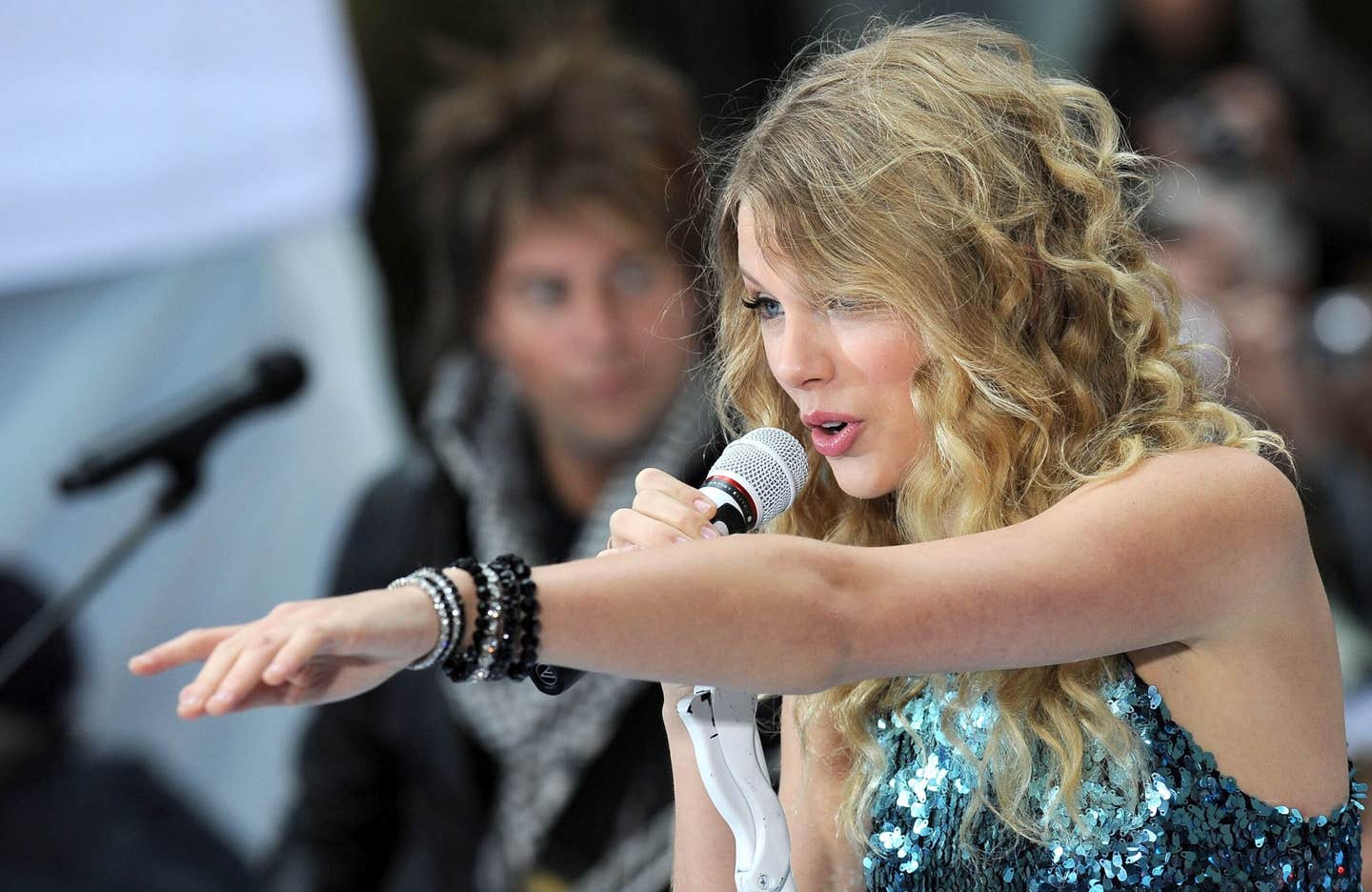Taylor Swift’s honesty about body image is changing lives
A new study finds Taylor Swift’s openness about body image helps fans rethink eating disorders and inspires healthier self-talk.

Taylor Swift’s candid talks about body image have inspired fans to rethink eating disorders and seek recovery. (CREDIT: Shutterstock)
When Taylor Swift spoke openly about her struggles with disordered eating and body image, many of her fans listened closely. A new study from the University of Vermont suggests that Swift’s candor has reshaped how some fans think about food, weight, and themselves.
Published in Social Science & Medicine, the research looked at more than 200 TikTok and Reddit posts and over 8,000 comments discussing Swift, eating disorders, and body image. By analyzing these online conversations, researchers discovered both uplifting and complicated ways her story has been received.
A Role Model for Healing
One of the clearest themes was that Swift has become a role model for recovery. Fans said her willingness to reveal her struggles made them feel less alone. Some even credited her honesty with helping them take steps toward healing.
Associate Professor Lizzy Pope, who teaches in UVM’s Nutrition and Food Sciences Department, explained, “Our findings suggest that fans who felt highly connected to Swift were influenced to positively change their behaviors or attitudes around eating or their body image because of Swift’s disclosures and messages in her music.”
Fans often leaned on her music as well as her words. Lines from her songs gave language to feelings they struggled to describe. One fan even wrote, “Taylor has really helped me recover from an anorexia relapse over the last few years and I know other Swifties have similar stories.”
Clinical Assistant Professor Kelsey Rose, a specialist in eating disorder treatment at UVM, added that Swift’s story carried special weight because she appeared to be thriving after her recovery. That sense of survival and growth was something fans could hold on to.
Related Stories
- How Taylor Swift's Eras Tour exposed a global web of cyber scams
- How Taylor Swift's Eras tour influenced her opening acts' careers
Lyrics as Lifelines
Swift’s songwriting also became a powerful bridge. Fans quoted her lyrics when describing their personal experiences with pressure, insecurity, or recovery. These references often made it easier for them to open up in online communities.
For many, Swift’s music created a safe space. Seeing their struggles reflected in her songs encouraged some to start conversations about getting help. It showed how art can become more than entertainment—it can be a lifeline.
The Shadows of Objectification
Still, the study revealed a stubborn problem: fans often continued to objectify Swift’s body, even while praising her. Comments that said she “looks so healthy now” might have been meant as compliments, but they still focused on appearance.
That focus clashed with Swift’s own frustration, expressed in her 2020 documentary Miss Americana, where she said, “I’m so sick of being objectified, and it’s driven me to disordered eating.” The research suggests that while her honesty encouraged healthier conversations, deep cultural patterns about beauty and thinness remain difficult to shake.
Mixed Feelings About “Anti-Hero”
Swift’s “Anti-Hero” music video added another layer of debate. In one scene, a bathroom scale displays the word “fat.” Some fans saw the choice as a bold attempt to show the harshness of self-criticism. Others felt the image was harmful or confusing.
These mixed reactions highlight how conversations about body image can’t always be simple. What comforts one person may upset another. The moment revealed how tricky it can be to create art that speaks to such personal struggles.
Positive but Complex Influence
Taken together, the findings show that Swift’s openness has been mostly positive. Fans reported feeling encouraged, validated, and even safer talking about issues that often carry stigma. Many said her transparency gave them courage to challenge harmful behaviors and inner criticism.
At the same time, the study reminds us that no single story—even one as widely heard as Swift’s—can erase deep cultural biases. Diet culture, anti-fat prejudice, and media-driven standards of beauty are powerful forces. While Swift has sparked meaningful conversations, change also requires larger societal shifts.
Power Beyond the Stage
The research highlights the power celebrities can hold in shaping attitudes about health and wellness. A few words from someone like Swift can spread farther and faster than years of public health messaging.
Pope put it plainly: “Taylor Swift can do more to change attitudes with a few sentences than we can do in our entire careers. There is little doubt that if she chooses to be, Swift can be a powerful voice for health, wellness, and more weight-inclusive practices that may move society closer to the idea of body liberation.”
By featuring diverse body types in her Eras Tour dancers and speaking frankly about her past, Swift has already challenged the myth that talent and beauty come in only one size. For fans, that message is both personal and cultural.
Practical Implications of the Research
The study shows how one celebrity’s openness can spark healthier conversations about eating and body image, reducing shame and encouraging people to seek help. Swift’s influence may inspire more artists and public figures to share their stories, making it easier for fans to talk about their own struggles.
While individual voices can’t solve systemic problems like diet culture on their own, they can push society toward greater acceptance, compassion, and body diversity.
Note: Materials provided above by the The Brighter Side of News. Content may be edited for style and length.
Like these kind of feel good stories? Get the Brighter Side of News' newsletter.



